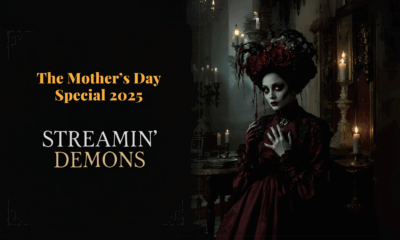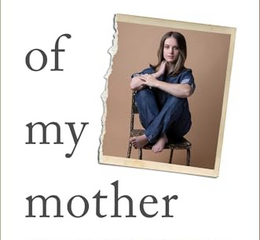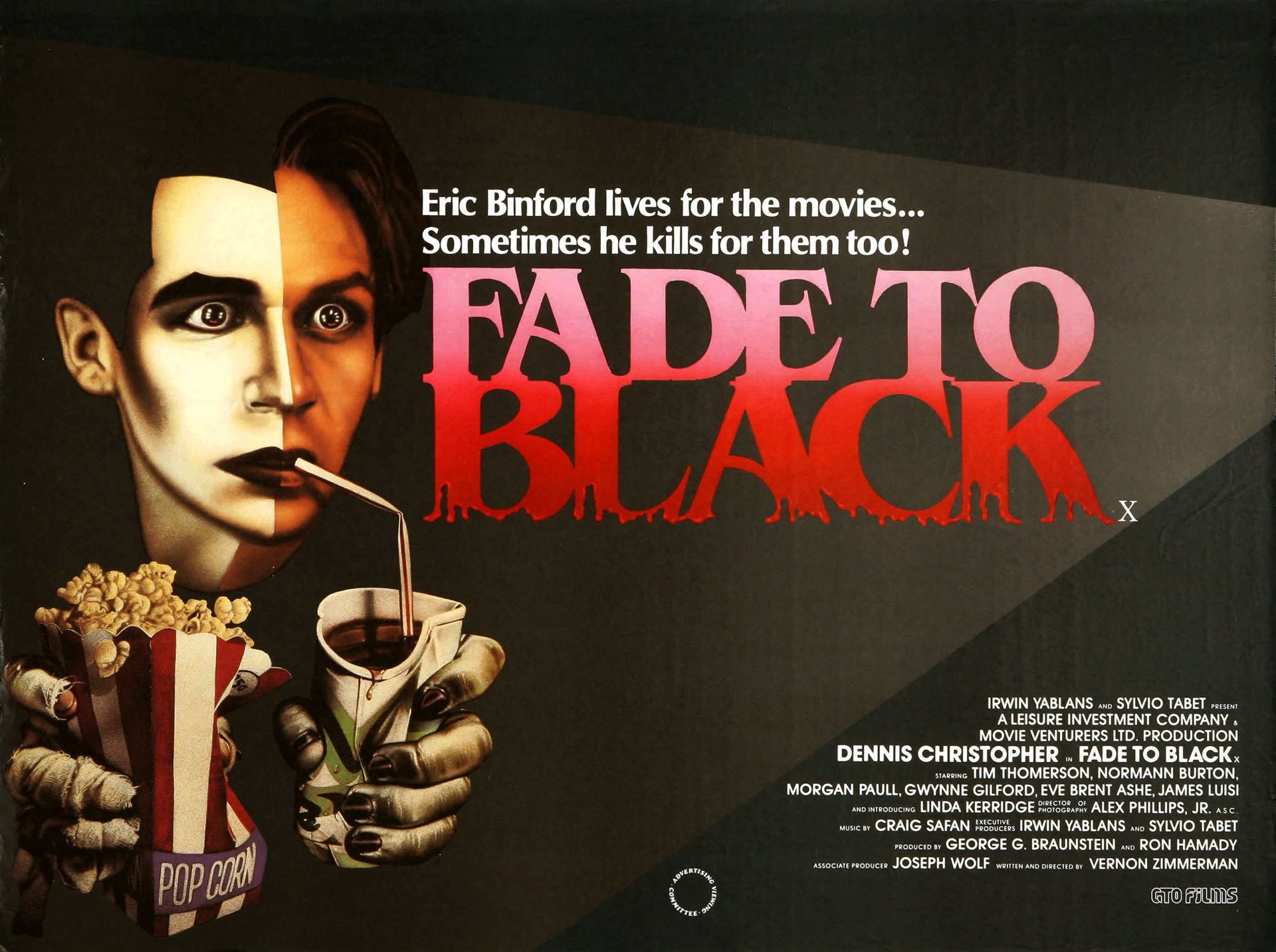
Screen Slashers: Fade to Black and the study of cinephilic killers
If you haven’t seen Vernon Zimmerman’s film Fade to Black, I recommend you watch it immediately. It is a criminally underrated gem that can only be appreciated by a certain portion of the movie-loving population. Released in 1980, Fade to Black is a film made for horror cinephiles ripped down the middle between dark character study and oddball slasher. It is one of my all-time favorite horror films to come out of the 1980s and a lot of that has to do with the film’s lead character, Eric Binford (Dennis Christopher), a unique kind of serial killer.
There are two ways to look at a character like Eric. You either sympathize with him or you think he’s a weasel. He’s an awkward loner obsessed with movies. They are his only source of comfort, and the characters his only friends. He’s so frightened of the world and uncomfortable in his own skin that he begins to impersonate these characters in his everyday life, merging them with his own personality. These new personas enable him to take revenge on his bullies.
His attachment to film is framed like an addiction. The late-night movie sessions he obsessively engages in are very suggestive of drug use. Sitting in a little ball in a ratty t-shirt in the dark as he stares at the projecting images with a dazed expression, the drug has consumed his life. He’s only alive when he’s pretending to be someone else.
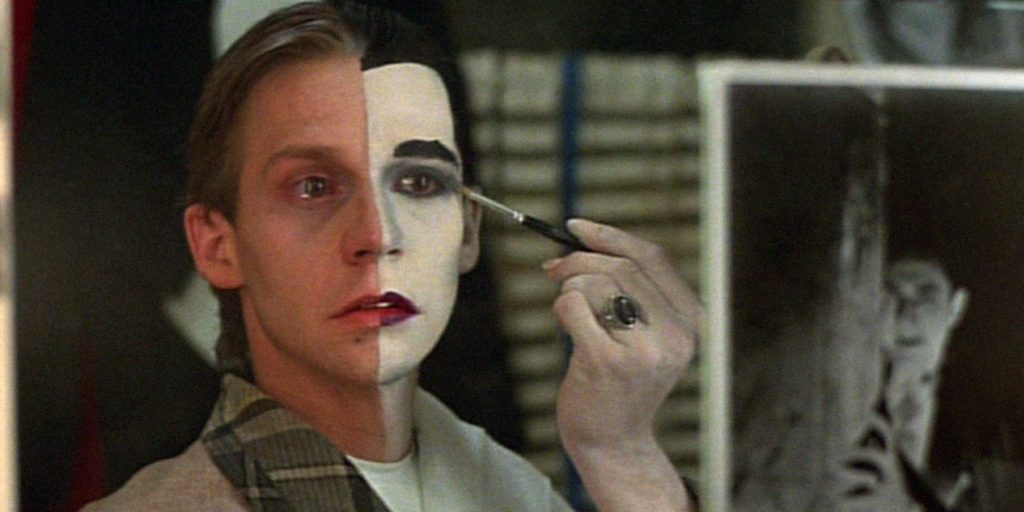
Eric’s behavior can easily be written off as the behavior of someone struggling with a mental illness, someone who’s just “crazy,” but if you’re able to understand what’s going on inside his head, then his odd behavior seems reasonable, even rationale. Fade to Black is not the only film to show a movie-inspired killer but most take a satirical approach while Fade to Black takes a slightly more clinical approach. Eric Binford may be a product of fiction but the cinephilic killer is very real.
Peter Moore
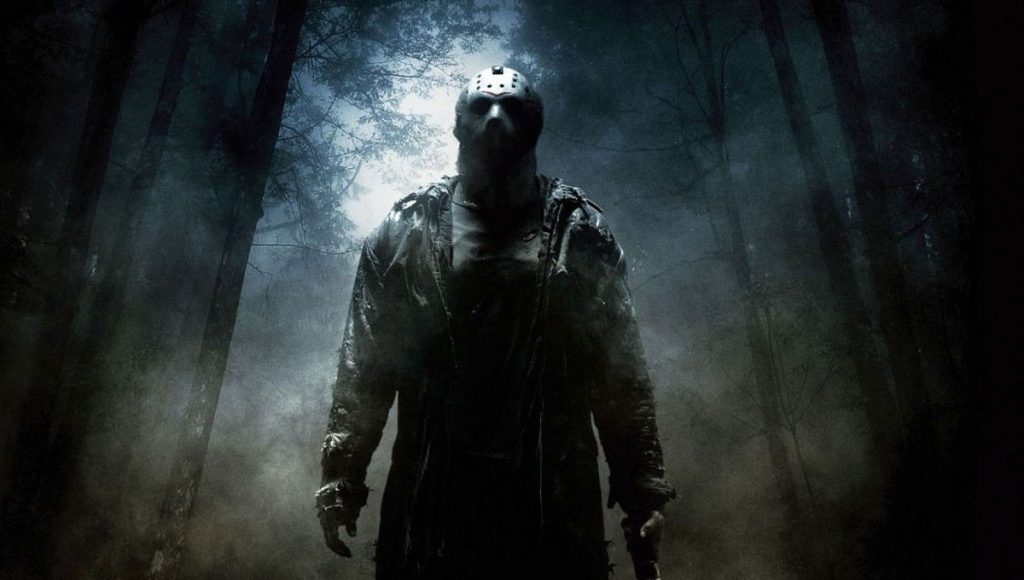
In 1995, the owner of a chain of movie theaters named Peter Moore was accused of killing four men in North Wales. Also referred to as The Man in Black, Moore targeted members of the LGBTQ community, stabbing, and mutilating their bodies for “fun.” At the time of his arrest, it was widely believed that he had been obsessed with the Friday the 13th franchise and even blamed the murders on a fictitious male lover named Jason.
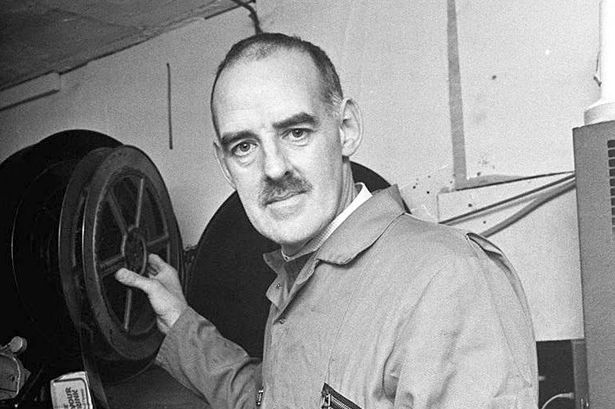
Moore wasn’t like most prolific serial killers. He had a good life growing up with a mother who doted on him. He had no prior violent behavior that anyone could see and his murder spree seemingly came out of nowhere but his actions during his own trial were that of a narcissistic psychopath in complete control. Not of a delusional movie fan. I’m not 100% sure where the Friday the 13th excuse came from but it was likely something the press made up or an excuse Moore tried to use at the last minute.
According to Alex Carlile, the lead prosecutor at Moore’s trial, Moore was a monster of a human who lived to be the center of attention. A master manipulator who was incredibly vane, he enjoyed being on trial.
Daniel Sterling
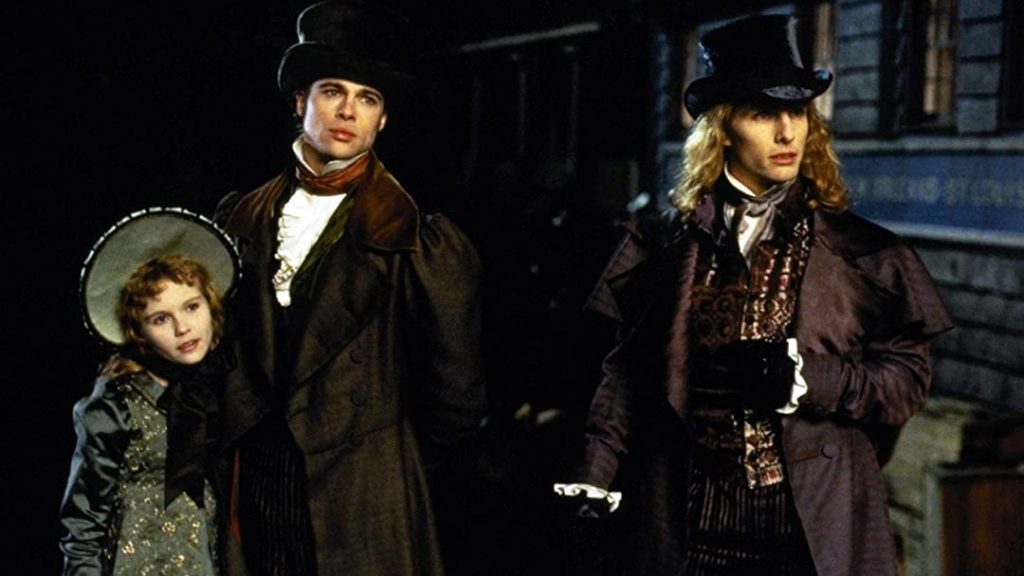
Does anyone remember the man from 2015 who bit his friend after marathoning The Walking Dead? This is very much like that, only worse. In November of 1994, a man named Daniel Sterling reportedly stabbed his girlfriend Lisa Stellwagen and drank her blood because he just loved Interview with the Vampire too much. The morning after seeing the film together, Stellwagen woke up to find Sterling staring at her in bed. When she asked what was wrong, he responded with these words straight from the Edward Cullen handbook: “I’m going to kill you and drink your blood.” And he attempted to do just that, stabbing her a total of seven times in both the back and chest. Thankfully, she survived the attack and was able to stop him.
“I was influenced by the movie. I enjoyed the movie,” Sterling said. “But I cannot sit here and blame the movie.” He also said that he believed in vampires but didn’t want to be one, which is an odd thing to say after you had just gotten finished acting like a vampire.
More about the case came to light a few years later where it was revealed that Sterling originally tried to blame the attack on a black man. His actions were later believed to have been a crime of passion brought on by a jealous rage when he discovered that Stellwagon had gone out with another man shortly before the attack. During Sterling’s trial, psychiatric experts testified that he’d suffered from psychological issues his entire life after his mother committed suicide when he was 10. He was believed to have had Type 1 Bipolar Disorder and at the time of the attack, had been suffering from a manic episode.
Daniel Gonzalez
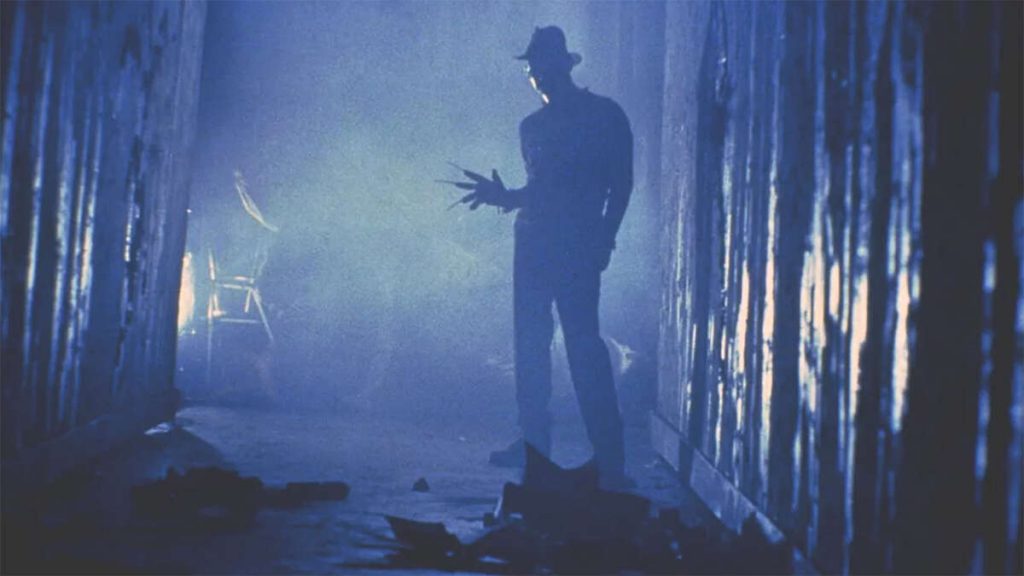
In a murder spree that lasted for two days, Daniel Gonzalez claimed to have been inspired by the A Nightmare on Elm Street franchise, and to a lesser extent Friday the 13th, when he went on a drug-fueled rampage that left four people dead and two injured. He wrote about his experiences in letters that described how much he enjoyed the murders and how similar he thought he was to dream demon, Freddy Krueger.
On September 15, 2004, Gonzalez started randomly stabbing people he encountered on the street, murdering them in events that he described as “orgasmic.” Upon his arrest, Gonzalez was given six life sentences without the possibility of parole only to die by suicide just three years later on August 9, 2007.
Like Sterling, Gonzalez’s early life contained its fair share of red flags. He’d been born into a good family and given a proper education but suffered from serious behavioral problems. When he around 18 years old, he was admitted to Oak Tree Clinic, a mental health hospital where he received treatment for about a year. His claims of being influenced by Freddy Krueger were believed to have started there, which I’m going to assume originated from A Nightmare on Elm Street 3: Dream Warriors, which takes place in a psychiatric hospital. It’s possible he found comfort in the film, taking on a Freddy persona to better cope with his new surroundings.
The Copycat Criminal
It’s all about the copycats. What these men did has nothing to do with their minds somehow being corrupted by the graphic depravity of horror films. Similar to the actions displayed by Eric Binford in Fade to Black, the films were the medium used to purge whatever turmoil already lived inside of them, while simultaneously serving as their model for adaptability.
Before mass civilization assembled everyone together into large piles, people lived in tribes or small groups where mimicking actions and behavior was a survival technique. Also called “mirroring,” it’s a technique that allows humans to adapt to their surroundings and better relate to their peers. However, as society has evolved and we have become excessively exposed while remaining in total isolation, television and social media have somewhat warped this. We now relate more to fictional characters than to real people.
Copycat crimes seem like a subunit of the “mirroring” effect. Used to take on a new persona other than your own, it’s often used to justify violent behavior. This is also a part of “mob mentality” in which people absorb the anger of those around them. It is a part of a depersonalization process used in culture change, war, and, even group activities. Just like how warriors paint their faces for battle or gang members dress in matching clothes, copycat criminals mimic someone of inspiration to reduce their inhibitions. Even if on a subconscious level.
Another explanation for this behavior centers on the idea that copycats thrive on the attention publicity gained by the original crime, and the subsequent attention that their related acts will receive. They learn that committing a similar action will give them the same attention. Easy fame.
Personally, I see some copycat criminals as adopting new personas of others, either real or fictional, because they have no sense of self. We all know people like this. They seem to have no opinion or personalized tastes. Everything they do, say, or think can be traced back to another person. When they grow out of this persona, they take on a new one until they become a confusing mixture of them all, losing who they originally were in the process, very much like poor Eric in Zimmerman’s Fade to Black.
Movies n TV
Wheel of Time A Question of Crimson Is a Political Espionage Delight
Episode two of Wheel of Time felt like the beginning of a long journey. Stories are unfolding, lives are changing, and blood is spilling.
Let’s discuss.
The story
We begin this episode in the past with Elayne’s mother, Queen Morgase. It turns out her rise to the throne was a bit, shall we say, cutthroat. So when she shows up at the White Tower, Siuan is concerned.
She might have reason to be, too.
Meanwhile, Rand, Egwene, Moiraine, Lan and Aviendha are in the Spine of The World. As they travel through some of the most breathtaking lands I have ever seen on a TV show, Egwene is plagued with nightmares. We think at first that’s just her trauma working itself through her system. But we soon find out that it might not be that straightforward.
Finally, Perrin returns home to heal after his hand is almost cut in half. But when he gets there he finds the town has been infested by Children of The Light. And they’re looking for him.
What worked
There was something heartwarming in this episode about political espionage and choking religious persecution. And that is Elayne’s relationship with her family.
I have consumed a lot of fantasy content with royal families. And I have never once heard a princess call her mother ‘Mum’. I’ve never seen royal siblings get along. And I have sure as hell never seen a princess have a good relationship with her step-parent.
This was refreshing. Even though Queen Morgase is kind of a horrible person she seems like a good mother. And that’s an unexpected delight.

Of course, this is just one storyline among many. And while this can sometimes be overwhelming, in this case it wasn’t.
I’ll be honest, some of these storylines are going to drag for me. I know this because I’ve read some of the Wheel of Time books and I have an idea that not all the characters exactly pique my interest.
No one likes all the characters. No one likes all the storylines. While I am here for the political espionage between Queen Morgase and Siuan, not everyone likes it. While others might be fascinated with Selene trying to win Rand back, I couldn’t care less.
Having multiple storylines keeps everyone’s attention better. So long as things don’t get out of hand. Things can easily get out of hand. But this seems to be managed well.
So far.
What didn’t work
As I mentioned above, I’m not thrilled with Rand’s story at this point. And while it’s fine to not like a storyline when there are this many to choose from, it’s not fantastic that the one I like the least is the one involving our two main characters. And anytime we were with the team at the Spine of The World, the only thing that brought me joy was Moirain’s hat. It reminded me of Stockard Channing’s hat in Practical Magic.
The problem is that Rand is Charlie Brown with controversial magical powers. He is boring, serious, and pessimistic.
And yes, I understand that he has a heavy emotional burden and he’s the Dragon Reborn and that’s quite taxing and all. But let’s be fair, there isn’t a single person in this show that doesn’t have a heavy burden. And most of them manage to be fun occasionally.

All that being said, this episode of Wheel of Time did exactly what it needed to do. It set up conflicts at each of the three locations. It established emotional ties between the characters and the events. And it established goals for everyone.
This was, in short, a solid episode. Not groundbreaking, not mind-blowing or life changing. It was simply good. It was entertaining and moved the plot forward.
Well done.
 (3.5 / 5)
(3.5 / 5)
Movies n TV
Wheel of Time Returns With A Bang
Wheel of Time is back for season three. There are mixed feelings regarding this. Last season, there were some serious pacing issues. And some serious sticking to the book’s storyline issues. But we’re two seasons in, and we don’t give up so easily. So let’s dive into episode one, To Race the Shadow.
By the way, I highly recommend watching this episode with the subtitles on. You’ll see why.
The story
We begin this episode with Liandrin facing a trial of sorts for her rampant betrayal. She does her best to gaslight her Aes Sedai sisters into thinking that Siuan Sanche is the real traitor.

When that doesn’t work, she reveals how many Black Aes Sedai have actually infiltrated the tower.
Spoiler, it’s a lot.
In the aftermath, our whole team gathers to drink and enjoy one night of relaxation before they head out to the Tear to form an army for Rand. All is going well until they’re attacked by myriad creatures and a sentient axe.
What worked
This episode was long. It had a run time of an hour and eleven minutes. And a lot of that run time was spent in heavy dialog scenes.
Fortunately, these were well-done scenes.
If you’re going to have a lot of talking scenes, there are good ways and bad ways to do it. Last season, we saw lots of examples of the bad way to do it. But this episode did it well. For one thing, other things were going on while conversations were taking place. The characters are drinking, playing games, walking through an interesting city. And the scenes themselves didn’t stretch out. They weren’t repetitive. We heard what the character had to say, then we moved on.
It was also nice that the point of these scenes wasn’t just info dumps. We had character development. We had romantic interactions. We had plot development and foreshadowing.
Overall, this episode felt like what it was. A moment of calm before a storm.
Taking a step back, I’d be remiss if I didn’t address the fight scene at the start of the episode. Because it was epic.
The magic looked amazing. The martial arts that went along with it looked fantastic. The costumes were beautiful. It was just incredibly fun to watch.
More than that, it was emotional. We lost some characters in that fight that were important. And it was clearly emotionally shattering for many of our characters, who found themselves betrayed by people they trusted.
So many of them.
It was a great way to open the season.
What didn’t work
Despite that, this episode wasn’t without its flaws.
First off, there were a lot of dialog scenes. And they were good scenes, as I’ve already discussed. But it was one after another after another. And when your episode is, again, an hour and eleven minutes, it’s maybe a little much to have so much chit-chat. Couldn’t some of these conversations, important as they were, have been moved to maybe another episode?
Finally, I want to talk about Egwene’s travel through the arches.

I feel like maybe there were some deleted scenes here. Because there must have been more to that visit than what we saw, right?
We could have seen Egwene battle Rand. That would have been badass and emotionally devastating. We could have seen her with a quiet life with Rand back home at the Two Rivers. We could have seen anything except for the quick clip of Rand in a bloody river, followed by Egwene being shoved back out in a bloody shift.
Bad job. But at least it wasn’t an extended scene of Moiraine collecting bathwater, and then taking a bath while looking sad. If we’d started this season with another scene like that, it might have broken my brain.
Amazon dropped the first three episodes at once. So we’ll be back soon to talk about episode two. See you then.
 (4 / 5)
(4 / 5)
Movies n TV
Entertaining as hell: Eight Legged Freaks (2002) Review
Early 2000s is a special era for the industry. It accepts the cheesiness and corniness of movie making, in turn producing some gems in their own right. Eight Legged Freaks starring David Arquette and young Scarlet Johanson is a horror comedy about giant spiders who overtake a small town. As crazy as that premise sounds, the movie surprisingly has a ton of heart and is super entertaining. Let’s review, shall we?
Plot
We start Eight Legged Freaks with a shot of toxic waste spilling into the water supply of Joshua, a spider farm owner. He is friends with Mike, one of our protagonists, who is a science geek and a spider enthusiast. Mike notices something quite right upon visiting Joshua, but no one takes him seriously. We are then introduced to the rest of the crew. Mike’s mother Samantha, the town sheriff, is too busy chasing Ashley, his sister, who is dating the town mayor’s son Bret (something Samantha does not approve of). We also have Chris, who returns to the town to save his father’s legacy in the town mines. He has opposition from Wade, Bret’s father, who wants to use the mines for his business ventures. Lots of drama going on that will only get juicier once the spiders get loose.
The creepy crawlies quickly dispose of Joshua and make their grand appearance after Ashley rejects Bret’s advances, abandoning him in the middle of a desert. A glorious chase sequence ensues as the spiders make their way towards the town, wreaking havoc on its residents. In a true horror fashion (which the movie acknowledges), it takes some convincing from Mike and then from Samantha for the town to take the threat seriously. The tongue-in-cheek style of narrative adds the comedy aspect to a movie that would otherwise burn out fairly quickly.
The remaining characters hide out in a shopping mall as it’s the only somewhat sturdy building in the area. This doesn’t last long as the spiders break in, forcing them to run through the mines. Their resources to fight the creepy crawlies off are limited as the methane gas doesn’t allow them to use firearms. Such conditions require resourceful thinking from Chris, who uses perfume to fend off the leader of the spider group and save himself during the climax of the movie.
Character dynamics are not forgotten once the action kicks in. We have Chris confessing his long-term feelings for Samantha which she knew all along, which provided some comedic relief. Bret also reunites with Ashley and apologises for being an asshole. Mike finally gets the appreciation he deserves as his knowledge saves the townsfolk more than once during the whole ordeal.
We end the movie with the town’s radio show person telling the story as an urban legend during his segment. This brings it into question – how much of it happened the way he said it did? We can only guess…
Overall thoughts
Eight Legged Freaks is a fun creature feature with some self-aware commentary on genre tropes that doesn’t take itself too seriously. The acting is good, the pacing fitting and the characters are likeable enough for you to want them to make it through. Definitely a must watch, if you don’t suffer from arachnophobia, that is.
 (5 / 5)
(5 / 5)


